Seven years ago, Kohutapu Lodge and Tribal Tours was but a dream for Nadine and Karl Toetoe. Today, and with the support of Karl's father Maurice, the "real life" tourism experience is not only mahi for the Toetoe's, it's a source of employment for the small town of Murupara (one of Aotearoa's most impoverished townships), it's an opportunity to open minds of rangatahi, and its the satisfaction of the sharing stories, culture and kai with manuhiri.
Kohutapu Lodge and Tribal Tours recently took out the Community Engagement Award alongside Stray Tours at the NZ Tourism Awards.
Earlier this year, the whānau-run experience of Ngāti Manawa, with a big heart for its Murupara community, won the NZ Māori Tourism Dragons’ Den’s Journeys of Aotearoa through Māori tourism award for Ngā Toru Rakau, a concept that will link three ancient forests: Northland (Footprints Waipoua with Tane Mahuta), Auckland (Te Haerenga Guided Walks, Motutapu and Rangitoto Island with the world's the largest Pōhutakawa forest) and Whirinaki Forest in the Central North Island.
NZ Māori Tourism spoke with Nadine Toetoe to discuss the operations of the lodge and some of the challenges starting out in tourism.
How did you get involved in tourism?
My background is in tourism, and we had always spoken about starting our own business. After seven years we finally decided to stop talking about it, and just do it.
We took a leap of faith and moved out to my husband’s tribal lands to provide a cultural experience for the world that is simply based on us - real life, our people, our stories, our community, our environment – and of course giving back. We are heading in to our 6th season this season.
What do you do?
We are a whānau-owned and operated tourism business located in the heart of Ngāti Manawa Tribal Lands.
We offer guided cultural tours, including a visit to the oldest rock carvings in Aotearoa. We talk about pre-European history, stories, myths and legends.
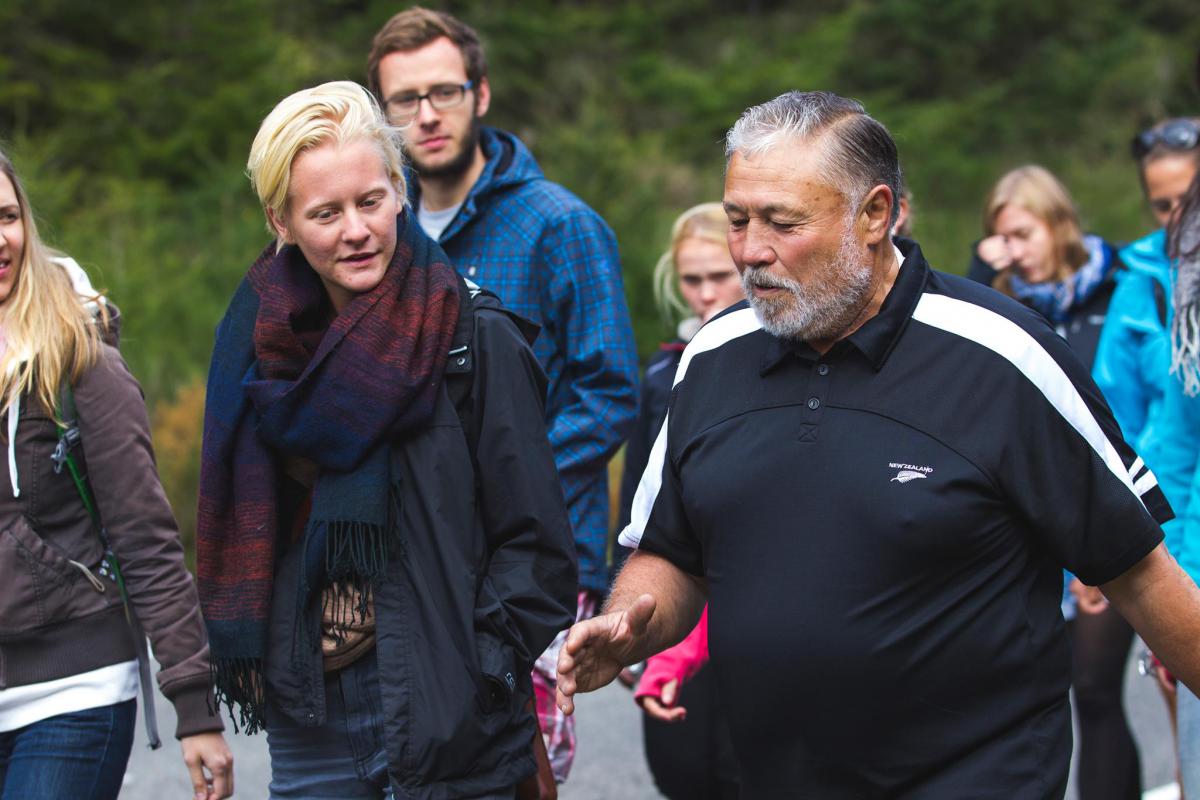
We talk about the forestry – how we are located in the largest man-made forest in the Southern Hemisphere, and how 100% of our town was once employed by forestry.
We then talk about the effects of commercialism on the forestry, offshore investors and ownership of the trees, mechanisation of jobs and the devastating effect employment has and continues to have on our people over the last 40 years.
"We took a leap of faith and moved out to my husband’s tribal lands to provide a cultural experience for the world that is simply based on us - real life, our people, our stories, our community, our environment – and of course giving back."
As we tour through our township, we talk about some of the realities we face as a people today, but we also stop by our Kohanga Reo, Kura Kaupapa and Marae to share the rich and deep history of our place, and the resurgence of our culture through our language and reconnection to our marae and whenua.
As we journey on out to Kohutapu Lodge, we share more history of the land and tales of battle, including stories about the prophet Te Kooti, our taniwha and significant sites. We talk about the importance of the tuna to the Ngāti Manawa people, the devastating effects the dams have had on the eel population and the tribal efforts that have gone into ensuring the survival of the tuna.
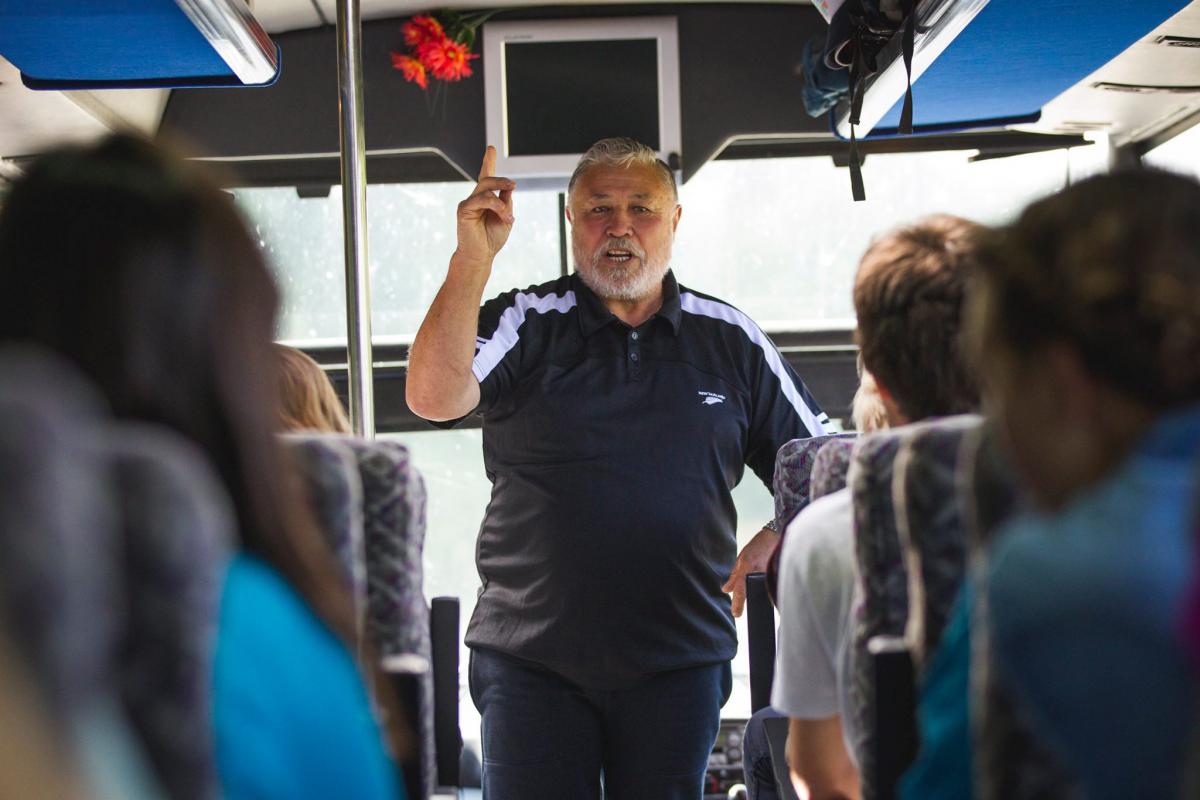
Upon arrival at the lodge, we jump onboard the bus and welcome our manuhiri into our home - and their home - for the night. We have 16 rooms, total of 67 beds, the majority of which are lodge cabins with bunk beds, and communal bathroom facilities. We also have 3 self-contained cottages. We put down a hangi and explain its process, before our manuhiri break out into activities: mau rakau, haka and weaving. Throughout this time, we are accessible and chat with our visitors. For some, they really want to dig deep and for others, a pleasant chat overlooking the lake with a cold beverage in hand is their desire. So the activities are not compulsory, but available for those who choose to participate.
After 2.5 hours, our visitors watch the hangi come up out of the ground. We prepare the kai in front of the manuhiri for the buffet. At the end of their meal, we share with them our back story – why we are out here, what we do in our community (thanks to them), where their money goes, and how much we have managed to do over the past five years.
Then we get them to help pack up all of the left over hangi meals, and the next morning we take them in to one of our local schools to deliver the kai to our kids, They spend an hour engaging in a structured cultural and educational exchange programme, where they help us teach our kids about the world. At the very end of the night, we provide storytelling around our outdoor fire pit, and a chance for our visitors to ask us anything about anything – we always say, there is no such thing as a silly question.
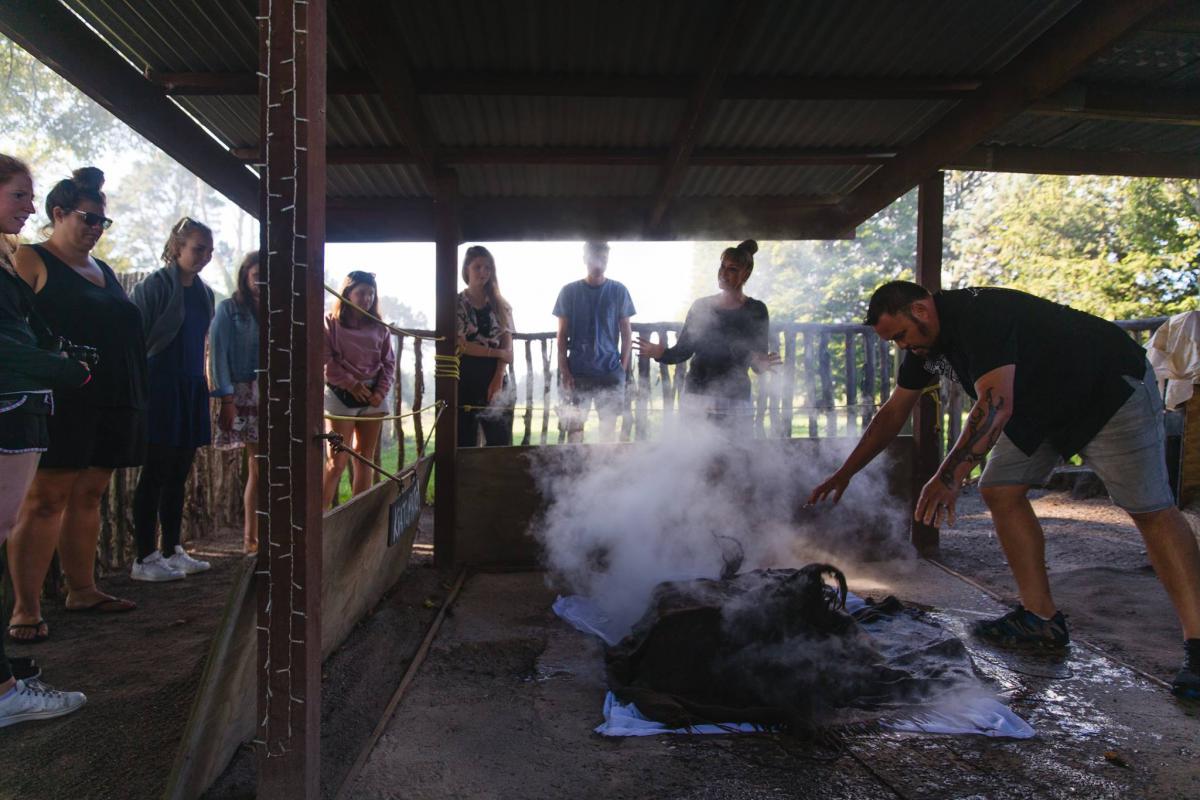
Recently you won the Community Engagement award – why is it important that you connect with your community?
Our community is a vital part of our business. We operate within our community, so it is natural for us to include our community.
Ngāti Manawa is a landlocked tribe and, historically, would protect their tribal boundaries fiercely with kainga and lookouts set up every few hundred meters apart. Some parts of the land were rich in resource, and some were poor. So, at a certain time of the year, the chief of the tribe would have everyone uplift their homes and rotate – so those who had it good, would have it not so good. Everyone learned to share, and to help each other survive. That is one of the principles we built our business upon.
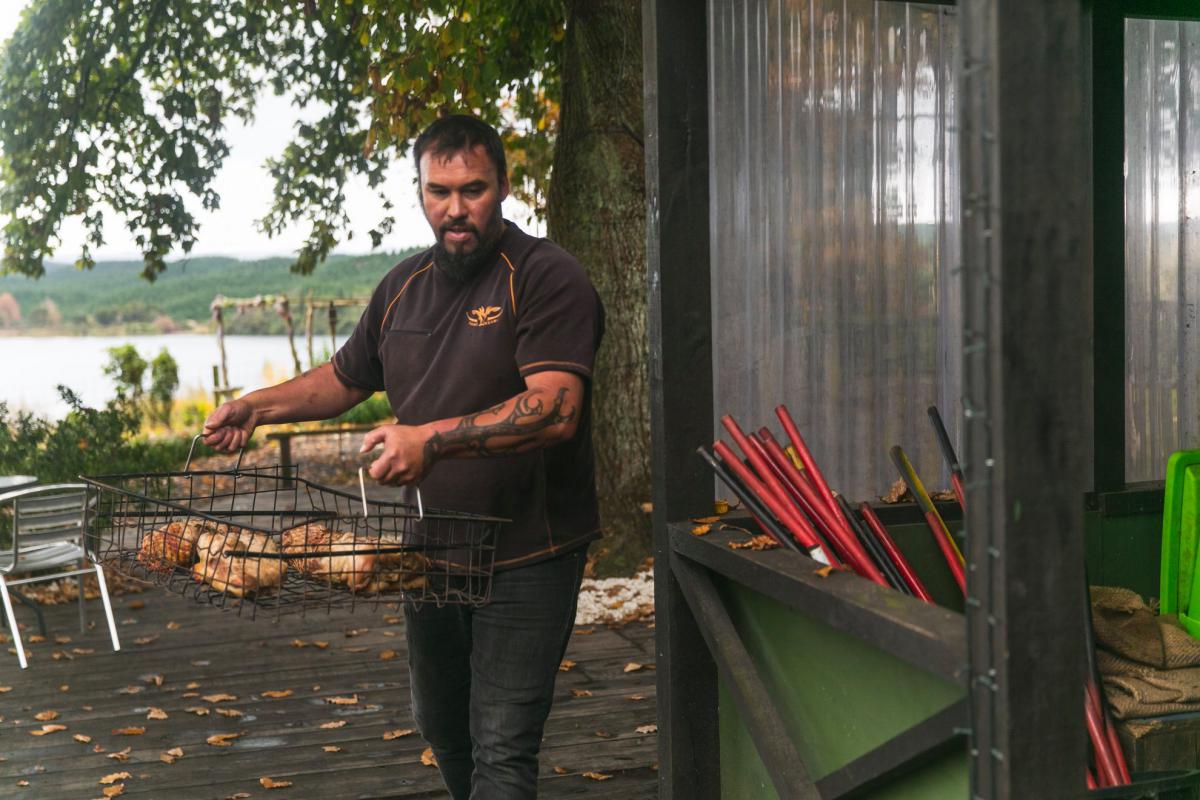
We couldn’t sit out here flourishing off tourism, while our people and town still struggle. So, we decided to make the community responsibility arm of our business one of the main pillars of our business. We believe if we have wins, our community and our people have wins, too.
What does it mean to you to win this award?
To become a finalist was an honour, but to take out the award, especially being up against such big and well-established businesses and brands, was overwhelming. It is an affirmation to us that we are good enough, that we are doing well, and it gives our people something to be proud of, too. We are remote, and because we work in our business every day, we don’t often have the chance to step back and look at how we are doing compared to other operators on a national scale – we get very caught up in the day to day operations – so it was really was a big deal for us to stop for a minute, to realise and be allowed to be proud of what we have managed to do so far.
"We couldn’t sit out here flourishing off tourism, while our people and town still struggle."
What were some of your biggest challenges starting out? And what are your biggest challenges now?
Funding and resource. Being a new start up business, and a Māori business, it was difficult to have banks back us from the start, so we were forced to have to prove ourselves to them. We could have, and probably would have, given up 100 times over if it wasn’t for our genetics and our natural hunger to fight to win, or our kids in our community who asked us not to leave them. We promised them we wouldn’t – and we do not break our promises – especially to our little people.
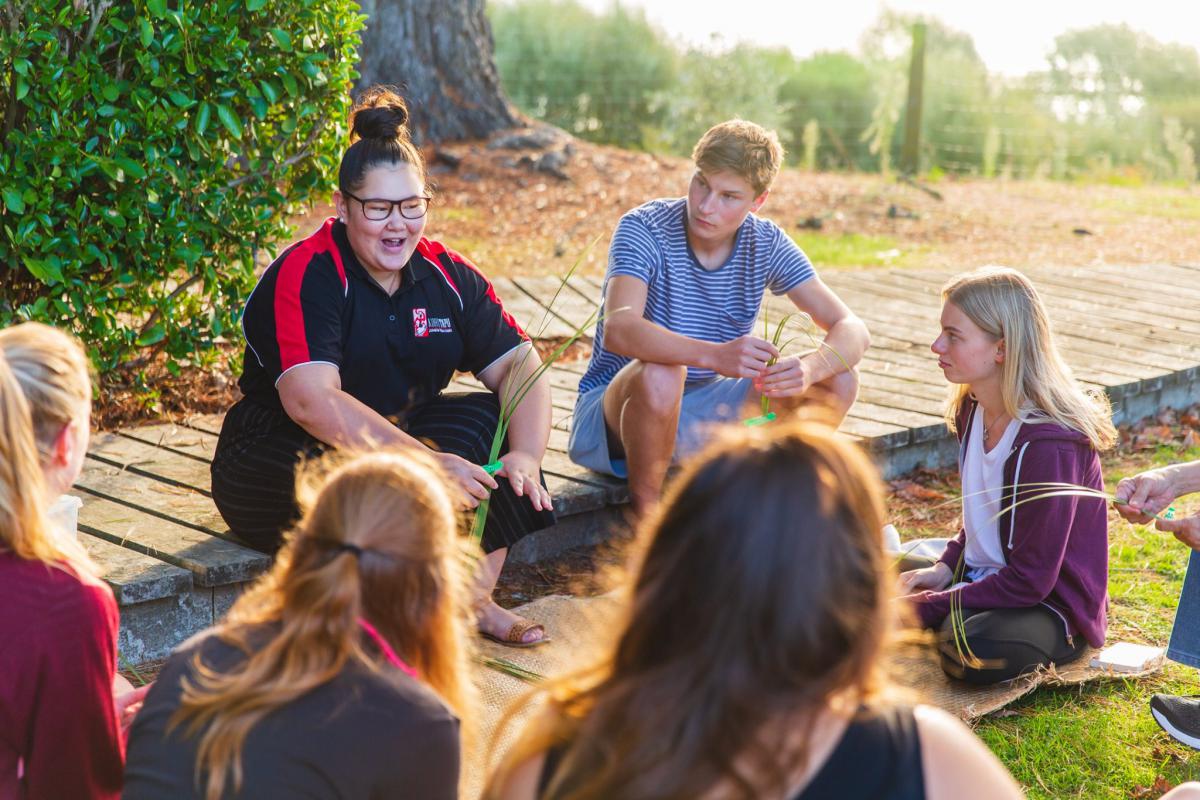
Being located in the region where we are, it is difficult to find staff who are committed to the days and hours of work. Resilience, and teaching our staff to get back up again when we get knocked down, is huge. Even though we are a small whānau owned business – we have the same expectations as large businesses – tax, bureaucracy, red tape – and for small companies like us, it is crippling. It is tough when you are working 18 hours a day, seven days a week in the summer time. It can feel like you are not getting any further ahead, but it really comes down to your passion, and having your team and whānau buy in to your vision, and to keep going no matter what.
Resource is still a big challenge we face today – the lack of time and ability to work on the business, instead of in the business, is tough.
What does the future look like for Kohutapu Lodge?
We are currently in the process of building more accommodation – our first big reinvestment back into our business after five years. We have locked in some daytime business and hope to grow our value proposition to market from there, as well as training up a pool of more talented young people from within our rohe.
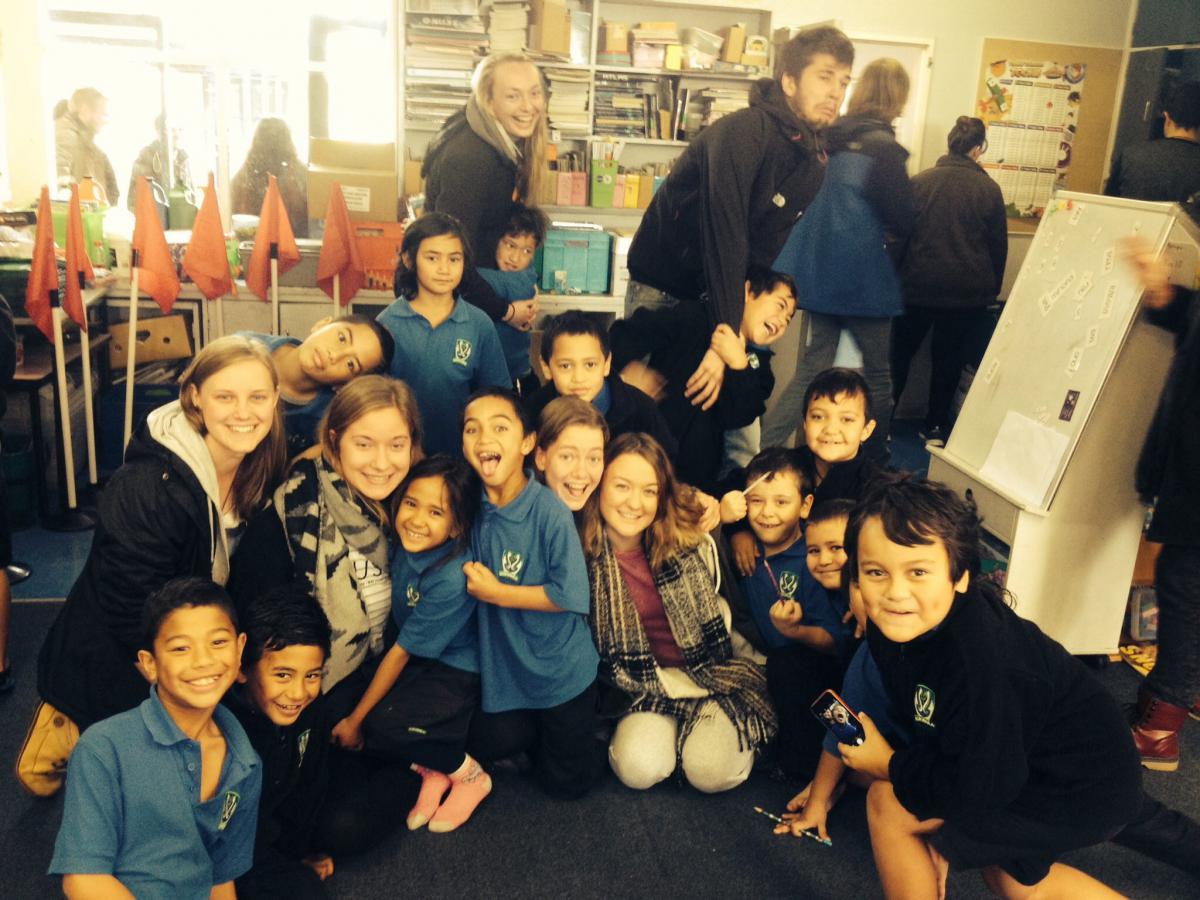
We are hoping to launch Whirinaki Forest Footsteps before the end of 2019, but that could possibly tip over into 2020 with concession application delays. We are looking to work more in this space of reconnecting our youth back to the ngahere and working with like-minded people and Maori tourism businesses to come up with some strong initiatives around this.
We also hope to drive a small Māori tourism cluster and do more work in the distribution chain educating suppliers about niche and remote Māori tourism products and communities. Our goals over the next few years are to grow our people into management roles within our business, so we can step back and work on the business instead of in the business every day. We’d also like to take a group of kids from Murupara overseas next year for a cultural exchange – and have a documentary team follow their journey.
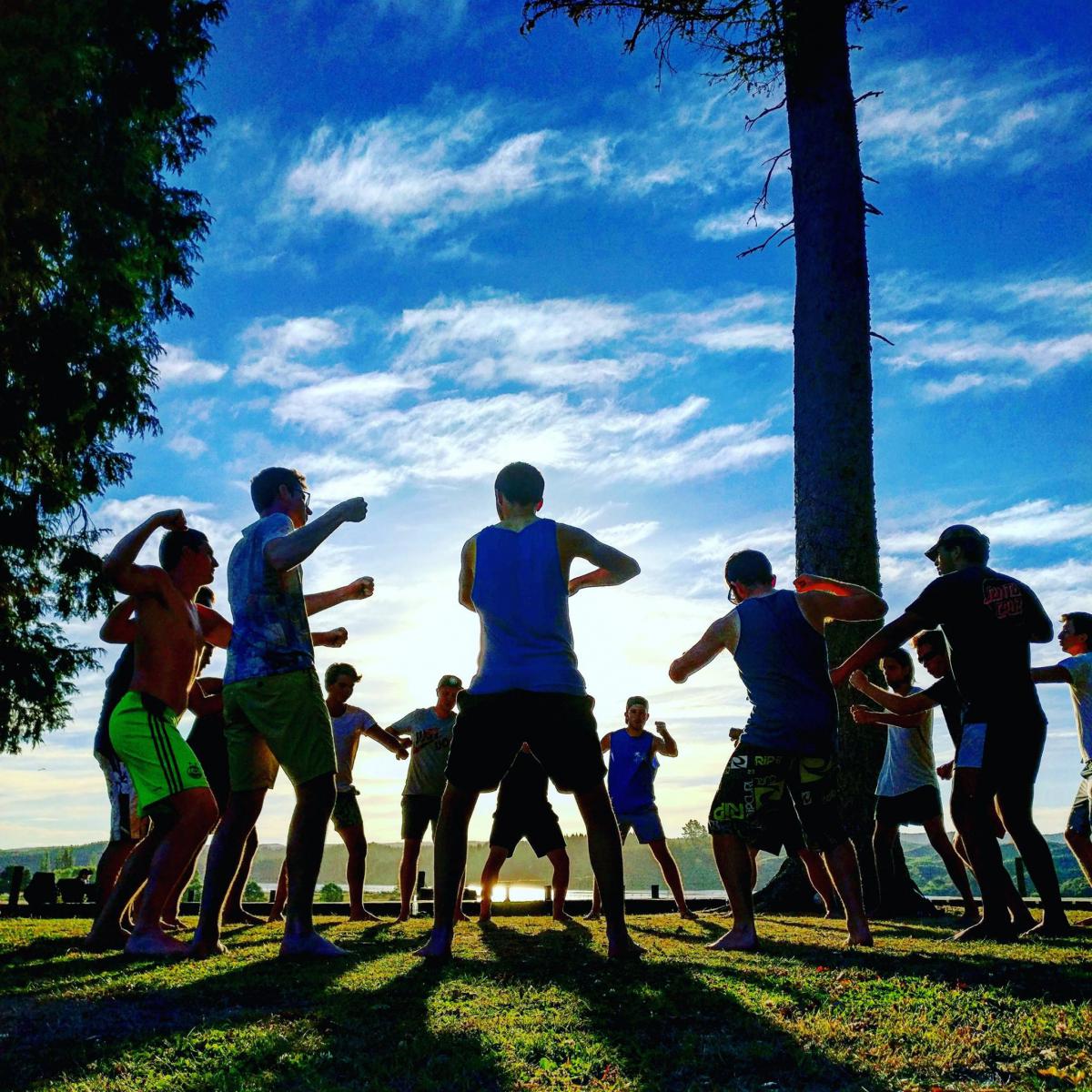
Nadine’s advice for those beginning in tourism:
- Seek support and kōrero with other Māori operators/established businesses – we can help or put you in touch with people who can help.
- Definitely write a business plan around your idea – because once you write your idea down, and assign time frames to it, it really does become a plan.
- And never give up. No does not mean no, it just means you have to find another way.
CONTACT KOHUTAPU LODGE AND TRIBAL TOURS
PHONE: Phone:+64 07 3664777
EMAIL: bookings@kohutapulodge.co.nz
WEB: www.kohutapulodge.co.nz
--(Photos from Kohutapu Lodge and Tribal Tours)

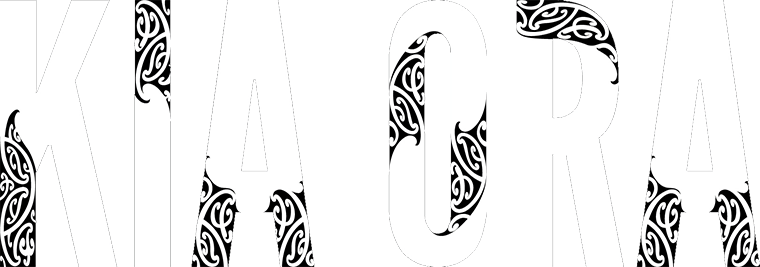
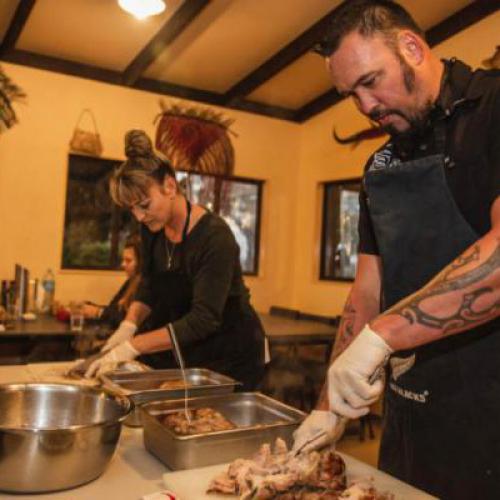
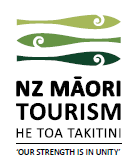
Add new comment